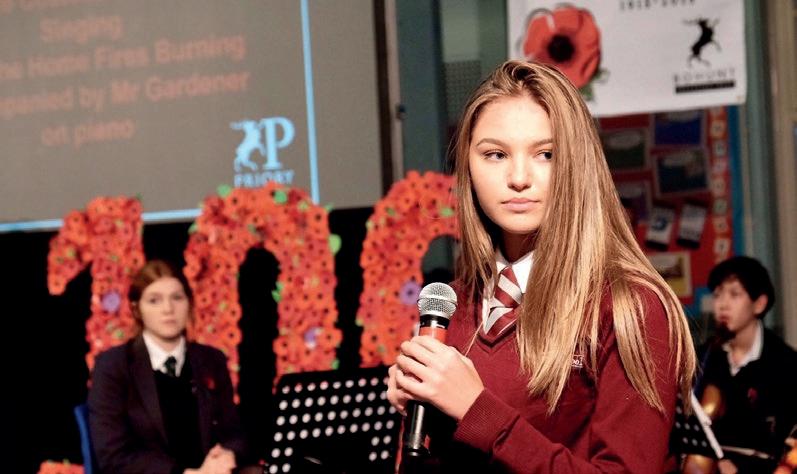
1 minute read
Bohunt Education Trust Termly Events Review BETTERTIMES
Bet Celebrates Centenary With Service Of Remembrance
Students and staff from Bohunt Education Trust (BET) proudly commemorated the 100th anniversary of the Armistice in November, with a special Remembrance Service at Priory School in Southsea.
Students from across the Trust reading WW1 poetry and literature, a collaborative cascade of beautiful handmade poppies and performances from a choir and orchestra were just some of the highlights.
Priory School was recommissioned as a Military Hospital during the First World War, and current staff and students were honoured to host the event for representatives from all six BET schools across the South of England.
Guests included 99-year-old veteran John Jenkins MBE Ld’H who read the Act of Remembrance, Stephen Morgan, MP –an ex-Priory student, Portsmouth’s Deputy Lord Mayoress Leza Tremorin and representatives from a variety of faiths in recognition of the history of and significance that Priory School played during the war, and the sacrifice made by local men and women from Portsmouth.
Stewart Vaughan, Headteacher at Priory said, “Armistice Day reminds us of the sacrifice that so many young men and women in Portsmouth made one hundred years ago. To remember them and the time they spent here at Priory has brought great pride, especially as this building held so much importance during the years of 1914–1918. It is important to us as part of BET that we teach children about the significance of our location in Hampshire, and the history of our forefathers from the area.” Neil Strowger, CEO of BET said, “Our approach to immersive learning enables all our students to experience hands-on history. The Centenary is an incredibly humbling occasion and we are fortunate in that many of our students come to school every day to Priory – a building that played a pivotal role in Portsmouth during 1914–18. Our ethos is Enjoy Respect Achieve and today is a key example to all our students and staff of respect for those who died during the Great War.’





